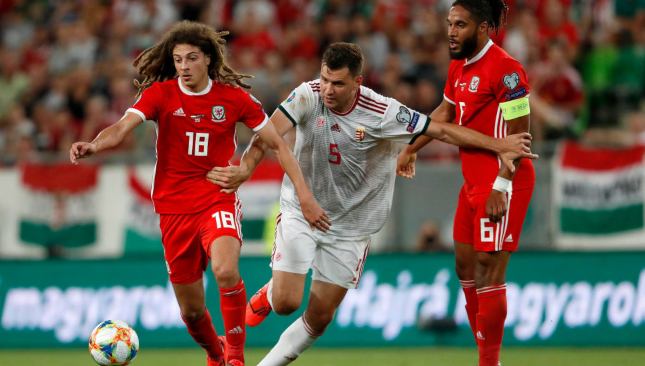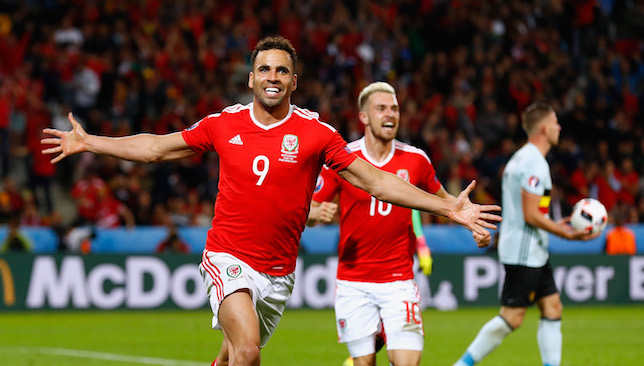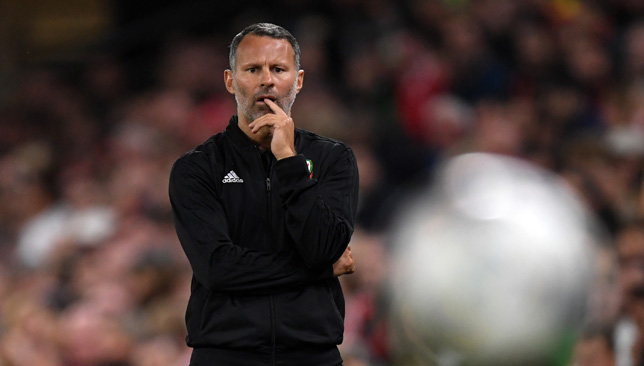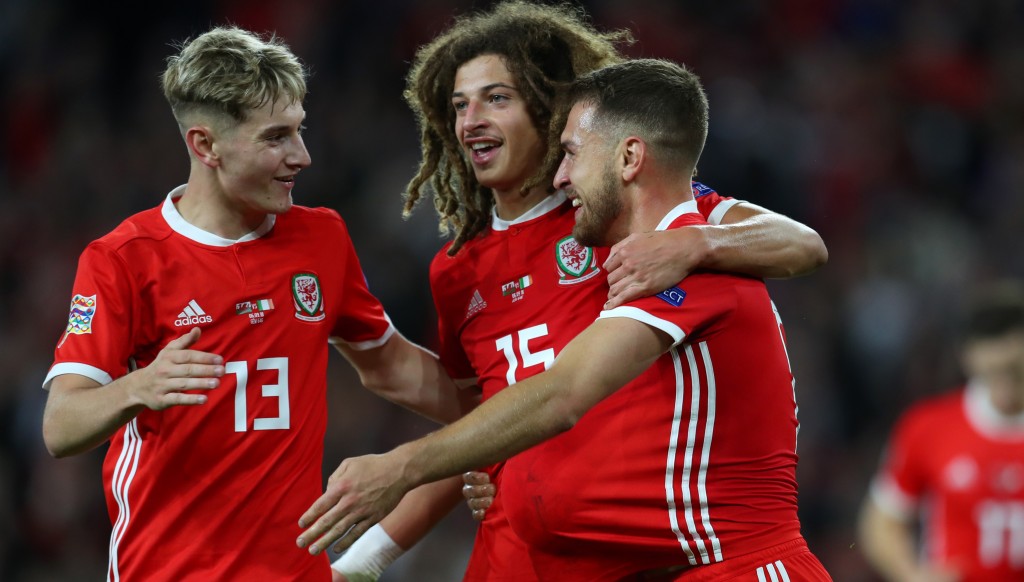
It says everything about the pedestal to which Wales have ascended in recent years that, just over 12 months into the job and following two straight defeats (seven in 13 overall), the pressure is already mounting on manager Ryan Giggs.
There are already more than a few dissenting voices who believe he’s not the right man to drag the Dragons forward and fire them to their next major tournament.
Wales fans are living in an enchanted era. For so long they roamed the international wilderness, yet a quantum leap was made when they heroically and unexpectedly made the semi-finals of Euro 2016. Memorably beating Belgium 3-1 in the quarter-finals before losing 2-0 to Portugal in the last four. It was an immense achievement by one of the most talented Welsh squads of recent times.
Vindication for Chris Coleman who’d had the unenviable task of following his friend and the man championed for Wales’ recent rise, Gary Speed. It was also justification for Speed and those who stuck by him in the early days of his appointment in December 2010 when results weren’t going so well.
The former Leeds, Everton and Newcastle midfielder had implemented a root and branch restructuring of Welsh football, both on and off the field. It all came to fruition on that blistering July 1 evening in Lyon when Speed, Coleman and every Welsh football fan’s dreams were surpassed following a magical night on which they beat a star-studded Belgium team and reached their first-ever semi-final.
Since a certain 17-year-old Pele scored the only goal as Brazil knocked them out of the 1958 World Cup quarter-finals in Sweden, Wales had gone 58 years without another major tournament appearance.

Hal Robson-Kanu scored a stunning goal to put Wales on course for the Euro 2016 semi-finals.
The blueprint had now been set. From out of the international backwaters, Wales had become a rising force. A lowly 117th in the FIFA world rankings as recently as 2011 (their worst-ever position), Wales climbed to their highest position of 8th on their way to qualifying for Euro 2016.
And they have not dropped outside the top 20 since 2014 (they currently occupy 19th, two places below Italy and three adrift of Nations League finalists the Netherlands).
The problem with success though, is that it breeds expectation. And Wales have failed to live up to their lofty Euro 2016 standards in the ensuing three years.
It was hoped the feel-good factor would spill over into World Cup 2018 qualification but they buckled under the weight of an expectant nation as an opportunity to end a 60-year hiatus from the World Cup was torpedoed.
The appointment of iconic former player Giggs was seen as a positive step in January 2018, and there have generally been many positives. There is a lot of excitement surrounding a new breed of young players being championed by Giggs. But this is both his secret weapon, and Achilles heel.
Speed and Coleman both had their individual challenges. Speed was attempting to write a totally new script for Welsh football in order to take it forward after years of mediocrity and failure. Vital progress was made but his tragic death in November 2011 meant Coleman was always seen as a usurper, at least at the beginning. Once he was able to stamp his own mark on the team though and manage his way rather than Speed’s, Wales flourished.

Giggs’ reign has got off to a rocky start, but no more so than that of Speed or Coleman.
But the challenge facing Giggs is another unique one. He has the task of nurturing and integrating some hugely promising players. But he is trying to introduce them to a squad of which, now, so much more is expected. There is more limelight, so every single move is scrutinised that little bit more.
Ashley Williams and Joe Ledley were two indomitable figures of the immortal squad that wrote such a glorious chapter in Welsh football history. But their form – for club and country – dropped off a cliff after 2016.
The likes of Bournemouth defender Chris Mepham, and Anderlecht’s James Lawrence, seem to be Giggs’ preferred new choice at centre-back.
But despite his struggles since moving to Everton, both in terms of form and injuries in his twilight years, it’s a juggling act for Giggs to both bring talented, yet raw, players into an elite environment, as well as delicately phase out stalwarts like Williams, Chris Gunter, Neal Taylor and Sam Vokes.
Obviously, star attractions Gareth Bale and Joe Allen (both 29), and Aaron Ramsey (28), still have vital roles to play. Whereas they have always been the gold standard over the last decade or so, their support cast has been able, if not outstanding.
Some of the players Giggs is attempting to introduce have the potential to be Wales’ next stars. The problem is they’re all so young and raw, it’s going to take a painstaking and prolonged period for them to get to the point where they can deliver consistently.
David Brooks, Harry Wilson, Ben Woodburn, Ethan Ampadu, Daniel James, Matt Smith, Conor Roberts and Mepham are names that could become the bedrock of the Wales team for the next 10 years.
With Bale, Allen, Ramsey and other reliable cast members like Ben Davies and Wayne Hennessey still also part of the production, Wales certainly possess stardust. An ensemble that has the capacity to surpass even the summer 2016 blockbuster.
The problem is this; because Wales have rediscovered an appetite for dining once again at football’s top table, it leaves a bitter taste in the mouth when things don’t run so smoothly.

Wales have some outstanding youngsters emerging, like Brooks (l) and Ampadu (c).
And following chastening back to back defeats to Croatia and Hungary on the road to Euro 2020 qualification, frustration abounds. Epitomised by wide discontent and the feeling that Giggs isn’t the man for the job.
But, just like Speed and Coleman, he needs time. Speed lost five of his 10 tragically short games in charge. Coleman lost five of his first six and, after the same amount of games as Giggs, had one more win (4) but also one more defeat (8).
Things turned out pretty well for him.
Time to harness and hone the undoubted talent he has at his disposal is required. Will he get that time, should Wales fail to make a second major tournament in a row? That’s a tricky call to make. But it must be remembered just how far Wales have come in the last decade.
Patience is pivotal. This current new wave could be the greatest breakthrough of youth in the nation’s history.
Giggs was the famed ‘Class of 92’ spearhead, nurtured by Eric Harrison and brought through by Sir Alex Ferguson, at Manchester United.
He knows a thing or two about reaping the rewards of allowing youngsters time and space to grow.
The last few results have been far from pleasing or encouraging, but now is not the time to abandon ship and steer it on a drastic new course.
Now is the time to believe and back the boss. It is time to remember and reiterate the famous Welsh motto forged during Euro 2016 qualifying – #TogetherStronger.
Put the trust in Giggs to bring this talented group together and they – and Wales – will emerge stronger for it.